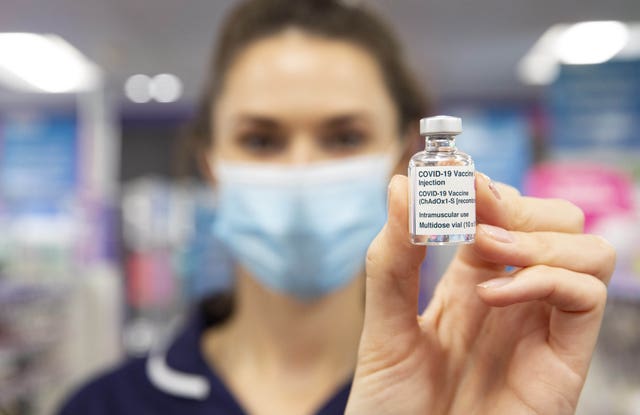A year of the coronavirus pandemic: Scientific breakthroughs that bring hope
A look back at key dates when the biggest scientific achievements were shared with the world.

There have been more than 100,000 deaths related to coronavirus in the UK, nearly a year after the first reported cases in the country.
As the country marks the grim milestone, there is hope for humanity – in the form of Covid-19 treatments and vaccines.
Sir Simon Stevens, head of NHS England, has said more treatments for Covid-19 may become available in the future and that the disease will become much more treatable.
Here is a reminder of some of the key dates when the biggest scientific breakthroughs on Covid-19 were shared with the world.
– January 11 2020: The first novel coronavirus genome sequence is made publicly available by Chinese authorities. The sequence has been uploaded to the Global Initiative on Sharing All Influenza Data. This genetic code will later become a key component for vaccine makers in designing their Covid-19 jabs.
– February 19 2020: A research team in the US describes the tiny molecular key on Sars-Cov-2, the virus that causes Covid-19, which allows it to enter human cells. This key is called a spike protein, which will become a target for many of the coronavirus vaccines.
– March 2 2020: Researchers in China reveal they have discovered how the new coronavirus attaches to a receptor on human lung cells called angiotensin-converting enzyme 2, or ACE-2. Research on this is still ongoing but scientists say that knowing more about ACE-2 receptors could provide clues about who is most vulnerable to Covid-19.
– June 16 2020: A large UK clinical trial, known as Recovery, provides the first evidence that dexamethasone, a cheap and widely available steroid, could reduce deaths from Covid-19. The researchers said the drug cuts the risk of death by a third for patients on ventilators. For those on oxygen, it cut deaths by a fifth.
– November 9 2020: Preliminary analysis from Pfizer and BioNTech shows their vaccine can prevent more than 90% of people from getting Covid-19, making it the first effective coronavirus jab. The developers describe their findings as a “great day for science and humanity”.
– November 16 2020: US company Moderna reveals preliminary results from its clinical trials, showing its Covid-19 jab to be nearly 95% effective in protecting against the disease. Moderna says it is a “great day” as it plans to apply for approval to use the vaccine.

– November 23 2020: Interim data from Oxford University and AstraZeneca suggests their vaccine is highly effective at stopping people developing Covid-19 symptoms, offering 70% protection. Professor Sarah Gilbert, the vaccine’s architect, says their work “takes us another step closer to the time when we can use vaccines to bring an end to the devastation” caused by the pandemic.
– December 2 2020: The UK becomes the first country in the world to approve the Pfizer/BioNTech coronavirus vaccine.
– December 30 2020: Oxford University and AstraZeneca’s Covid-19 vaccine is approved for use in the UK.
– Jan 7 2021: The Government announces that two rheumatoid arthritis drugs will be offered to critically ill Covid-19 patients at NHS intensive care units. This is after clinical trials showed tocilizumab and sarilumab reduced the absolute risk of mortality by 8.5 percentage points when administered to patients within a day of entering intensive care alongside a corticosteroid, such as dexamethasone.
– January 8 2021: The Moderna vaccine becomes the third Covid-19 jab to be approved in the UK.





